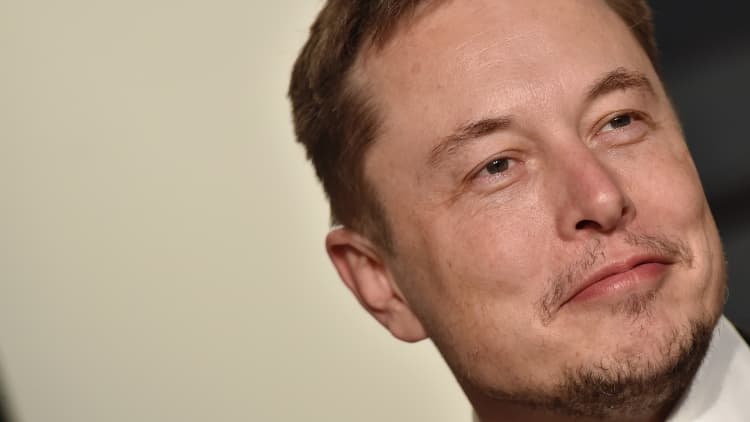When Elon Musk says that he read a lot of comics as a kid he isn't kidding.
"I read all the comics I could buy," the Tesla and SpaceX CEO tells Bloomberg, "or that they let me read in the bookstore before chasing me away."
When he wasn't reading a slew of science fiction books, classics like "Lord of the Flies" or the encyclopedia, Musk says his favorites were Batman, Superman, Green Lantern, Doctor Strange and Iron Man. His love for comics came full circle when Musk was tapped for a cameo in "Iron Man 2." He was so excited about the opportunity he let Marvel Studios film scenes for the movie at SpaceX's headquarters for free.
Here are four ways experts say comic books likely influenced Musk:
1. A love of science and technology
Science-based storylines were at a "zenith" in comic books around the time Musk was a kid in the 1980s, says Aaron "A." David Lewis, comic book author and comics scholar. It's easy to see how those themes could have sparked Musk's fascination with space travel, technology and energy.
Tony Stark, or Iron Man, is "a cutting-edge inventor and futurist," Lewis points out. Batman evolved from the role of "vigilante billionaire to being a genius detective."
"I have to imagine Musk absorbed this idea that there's this heroism to being smart and innovative," he says.
According to Susan Kirtley, an associate professor of English at Portland State University, comics encourage readers to embrace their own vision for the future.
"They inspire many of us to believe in ourselves and our visions for the future, despite any naysayers," she says. "It's not necessary to have a superpower to be a superhero, but rather faith and commitment."
2. The ability to make mental connections
"Around this time, comic books increasingly had interconnected plots," Lewis says, "where the storyline of one comic book would impact a completely separate comic book. It may have trained someone like Musk to look at the big picture."
Musk is known for macro-level thinking and a desire to transform industries and society.
"Comics themselves, in their format, if not also in their content, encourage readers to connect stories panel-to-panel and page-to-page," Lewis says. "They stimulate the visual graphic cortex, the part of the mind that creates sequences. It gives brains like Musk's a new way of thinking."
There's this heroism to being smart and innovative.Aaron "A." David Lewiscomic book author and scholar
3. An ambition to impact society
"If he was reading comics, he was enjoying and ingesting morality plays since his youth," Lewis says. "Maybe that gave him the gumption to do what he has. Maybe that inspired him to envision himself as a potential superhero, to write his own superhero story."
Kirtley echoes that point, and emphasizes the impact that sweeping narratives can have on a young reader.
"I think that, for any young person, these stories, these mythic narratives, can serve as an inspiration to achieve great things," she says.
4. The responsibility to use technology for good
Musk is a strong advocate for the responsible use of technology. In 2015, along with visionaries like Stephen Hawking, he penned an open letter warning of the dangers of misusing artificial intelligence.
That same issue is a big theme in comic books, according to American pop culture scholar and author Ramzi Fawaz.
"All of these comic books are about the fundamental the ethical stake we have in producing advantage technology and using it responsibly," says Fawaz, professor at the University of Wisconsin. "There's no way you could have read those comics and not been caught up in the continual meditation of that problem."
Doctor Strange, for example becomes a "cosmic-level magician," who uses his abilities to change time and space. But that magic, Fawaz says, is a metaphor for technology.
"It's really about technology, and how it requires incredible responsibility," she says. "Digital technology, cars that drive themselves — these give the appearance of things that are magical."

Feature photo by Steve Jurvetson is used under Creative Commons license


